The Ozempic Era and Shifting Obesity Blame
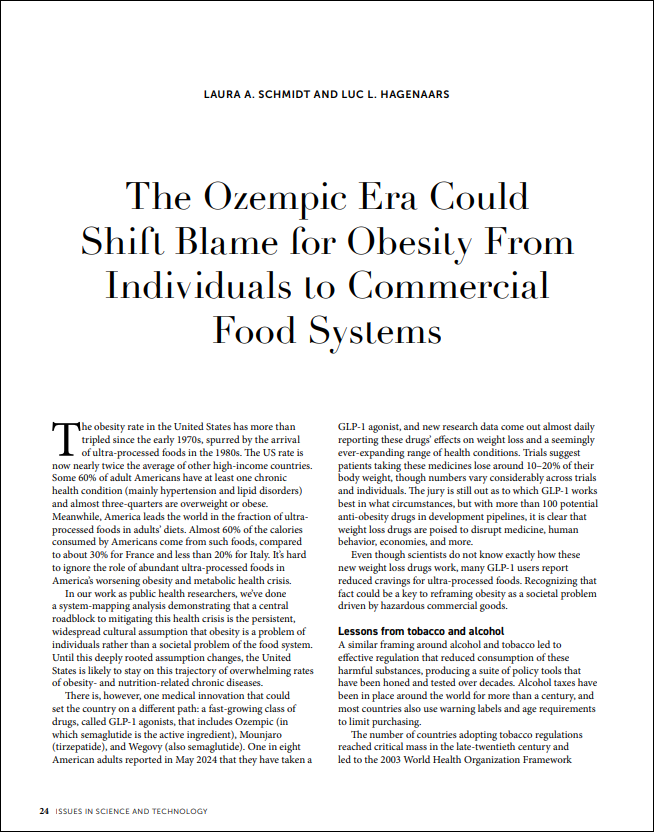
Schmidt, Laura A., and Luc L. Hagenaars. “The Ozempic Era Could Shift Blame for Obesity From Individuals to Commercial Food Systems.” Issues in Science and Technology 41, no. 3 (Spring 2025): 24–26. https://doi.org/10.58875/TEQC7966 Laura A. Schmidt is a professor of health policy in the School of Medicine at the University of California, San Francisco. Luc L. Hagenaars is assistant professor […]
Is Obesity Genetic or Environmental? YES!
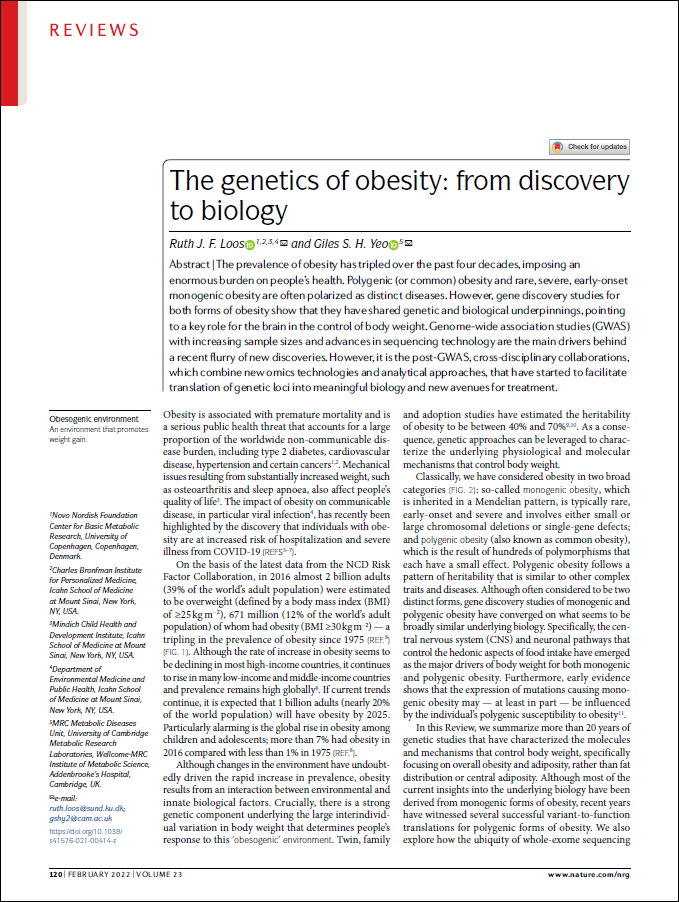
Vocabulary-GWAS – A Genome-Wide Association Study – a research method used to identify genetic variations (like single nucleotide polymorphisms or SNPs) associated with a specific disease or trait. It involves comparing the genomes of individuals with the disease or trait to those without it to find variations that occur more frequently in the affected group. SNP […]
GLP-1 RAs: Psychiatric, Cognitive, and Quality of Life Effects
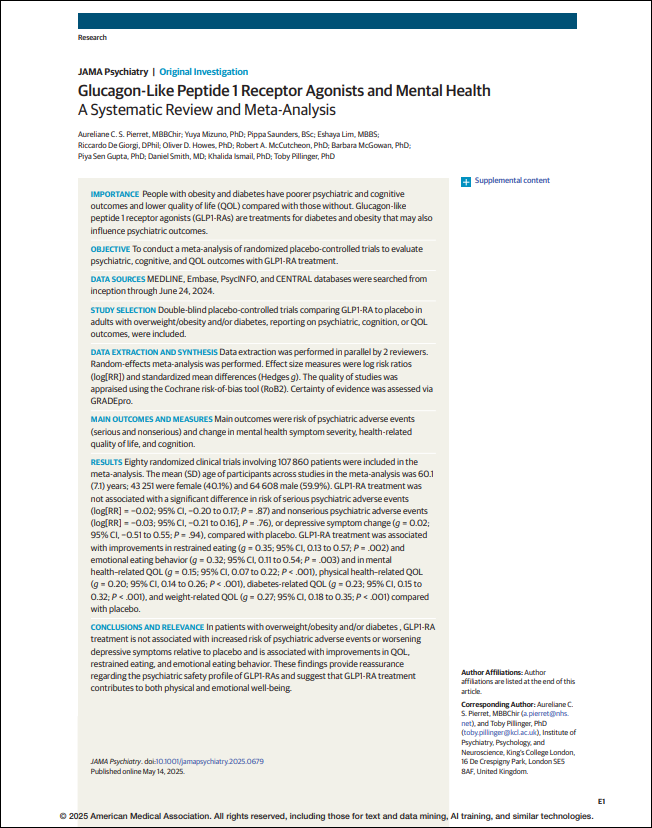
This meta-analysis examines the impact of Glucagon-Like Peptide 1 Receptor Agonists (GLP1-RAs), medications used for obesity and diabetes, on the mental health and quality of life of patients. The study analyzed data from 80 randomized clinical trials involving over 107,000 participants with overweight, obesity, or diabetes. Crucially, it found no significant increase in the risk of serious or […]
Novo Nordisk Partners with Telehealth for Wegovy Promotion

May 23, 2025Stat + by Katie Palmer https://ro.co/ https://lifemd.com/ Stat + reports on the evolving landscape of GLP-1 drug marketing, noting a shift in the relationship between major pharmaceutical companies like Novo Nordisk and telehealth providers. After previously battling telehealth companies offering compounded versions of their drugs, Novo Nordisk is now collaborating with specific telehealth platforms, including Ro and LifeMD. This partnership […]
Cysteine Deficiency Drives Weight Loss by Depleting CoA
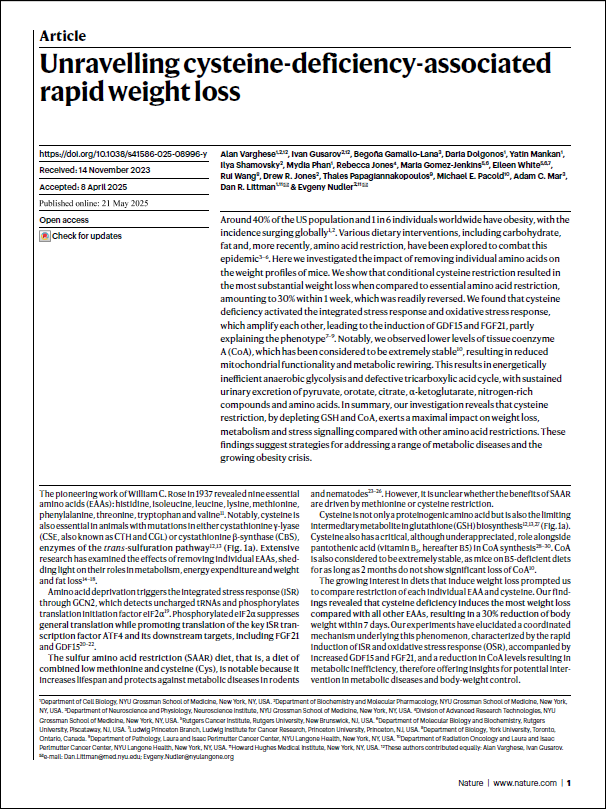
This research paper explores the impact of amino acid restriction on weight loss, focusing on the unique effects of cysteine deficiency. The study demonstrates that cysteine restriction in mice, particularly those with compromised cysteine synthesis, leads to rapid and significant weight loss, primarily through fat reduction. This weight loss is linked to the activation of stress responses, reduced levels of key metabolites like CoA, and resulting metabolic inefficiency, […]
MCED Test Performance in Obese Individuals

This abstract evaluates a multi-cancer early detection (MCED) blood test specifically designed for individuals with obesity, a group at higher risk for several cancers often without standard screening. The study investigated the test’s ability to accurately detect cancer and identify the tissue of origin using a two-step methylation profiling method. Results showed the test had a high positive predictive value (PPV) and reasonable sensitivity, […]
Mochi Health Launches Insurance-Based Plans, Expanding Access to Personalized Obesity Care with Behavioral Therapy

What You Should Know: – Mochi Health, a physician-guided obesity care program, announced the launch of its new insurance-based plans. – These expanded offerings are designed to provide more personalized treatment experiences for patients, placing a strong emphasis on comprehensive obesity care that spans all aspects of an individual’s health. – The new insurance-based plans […]
Fractyl Rejuva GLP-1 Gene Therapy Data at ASGCT 2025

The sources discuss Fractyl Health’s Rejuva GLP-1 gene therapy platform, highlighting preclinical data presented at ASGCT 2025 for its candidate RJVA-001. This research indicates that a single dose of RJVA-001 in animal models durably improves metabolic markers related to type 2 diabetes and obesity, achieving similar effects as existing GLP-1 drugs but with significantly lower systemic exposure, potentially leading to fewer […]
GLP-1 Use and Fatigue
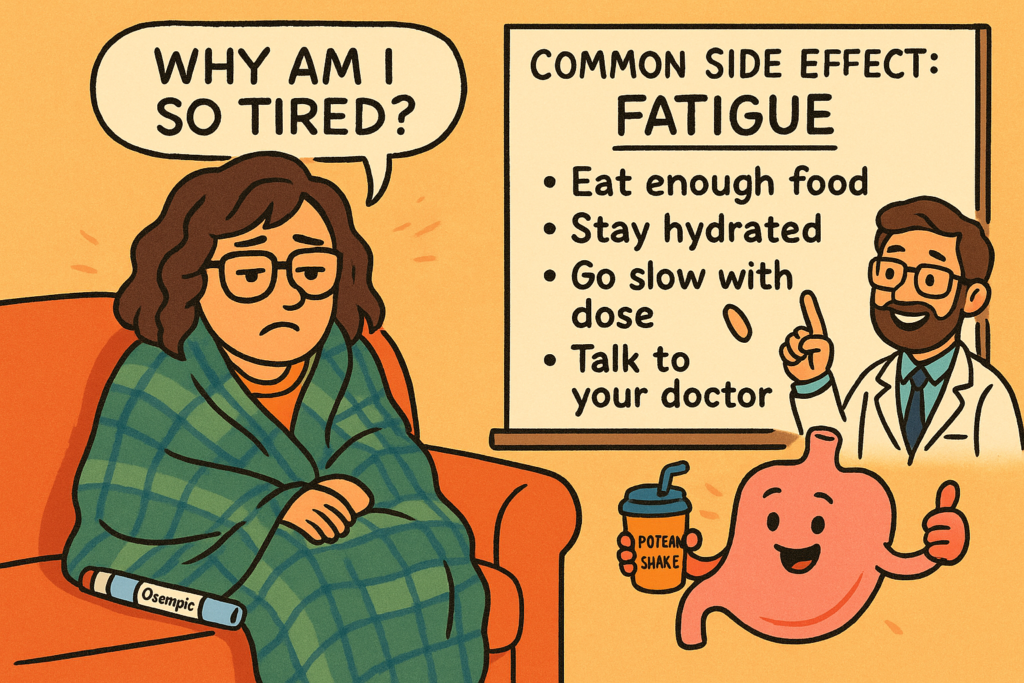
ChatGPTMay 26, 2025 Fatigue or low energy is a commonly reported side effect among users of GLP-1 receptor agonists like semaglutide (Ozempic/Wegovy) or tirzepatide (Mounjaro/Zepbound), but it is not as well characterized or studied as gastrointestinal effects. Here’s what is currently known: 🔍 What We Know About Fatigue and GLP-1 Use ✅ PrevalenceFatigue is reported […]
GLP-1 Microdosing Trends and Risks
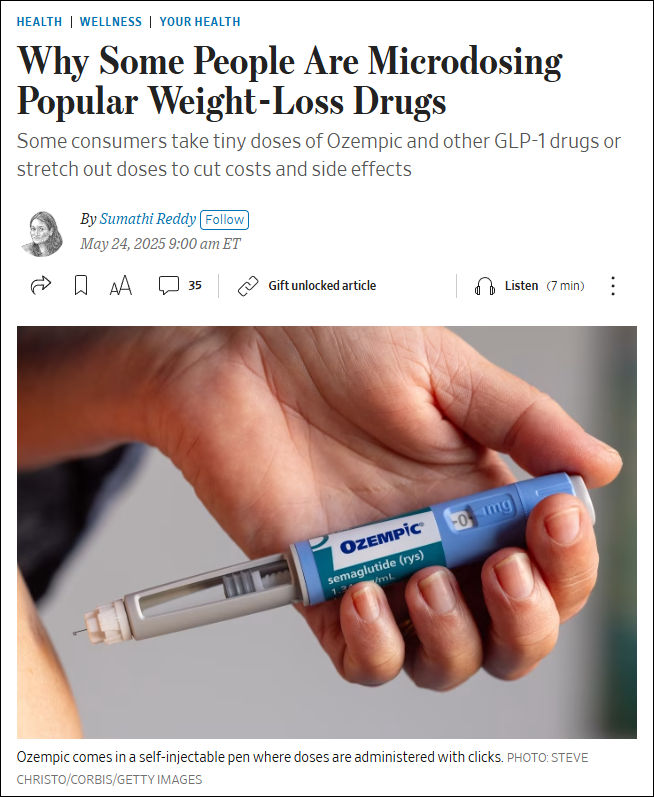
WSJ article discusses the growing trend of microdosing GLP-1 medications, like Ozempic and Zepbound, which are primarily used for weight loss and diabetes management. Some individuals are taking smaller or less frequent doses than prescribed, often motivated by cost savings, a desire to reduce side effects, or the belief in potential health benefits beyond weight loss. While some doctors […]
